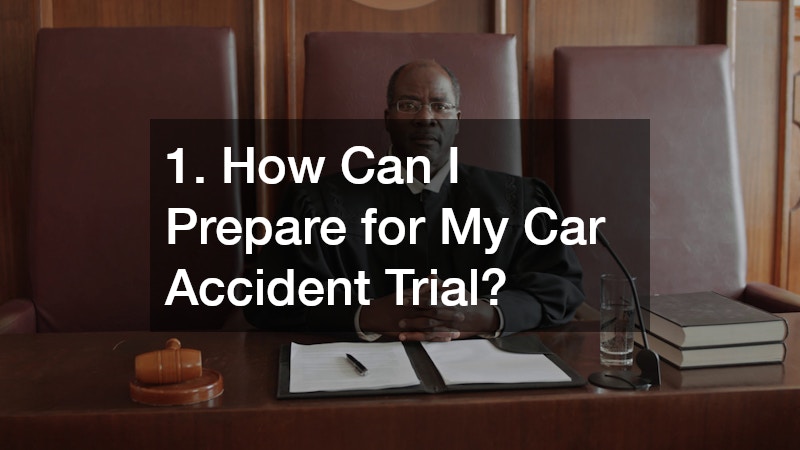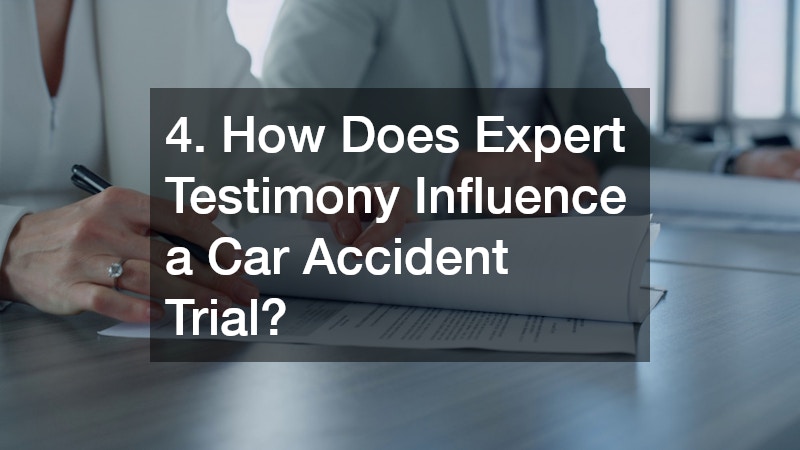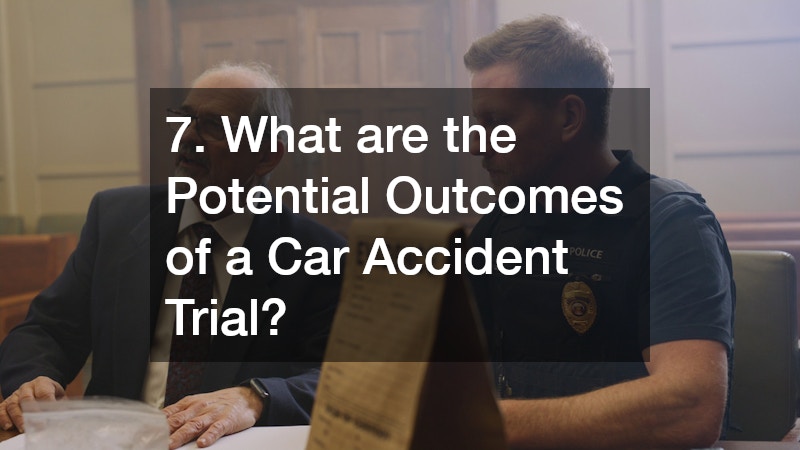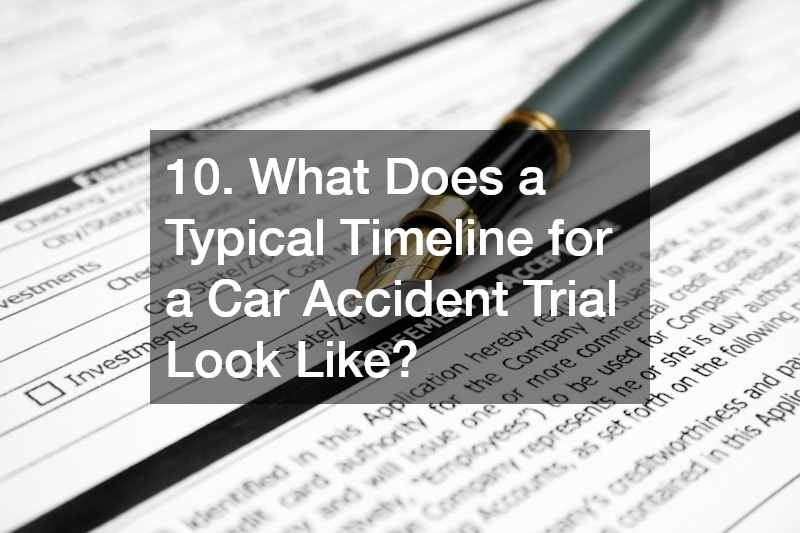Car accidents are among the most stressful and life-altering events anyone can experience. Beyond the immediate physical injuries and emotional trauma, victims often face mounting medical bills, property damage costs, and lost income due to time away from work. For many, seeking justice through a car accident trial becomes the only path to fair compensation. Winning such a trial is more than a legal victory—it is often the key to rebuilding financial stability, receiving proper medical care, and holding negligent drivers accountable.
However, succeeding in a car accident trial is rarely simple. The legal system involves complex rules, procedures, and requirements for evidence. Insurance companies and opposing attorneys work tirelessly to minimize payouts or shift blame, making the process even more daunting. Every step, from the immediate actions taken after the accident to the courtroom strategies employed during trial, can significantly influence the outcome.
Victims must understand the importance of careful preparation, credible evidence, and strong legal representation. Engaging professionals like a car accident law firm or an experienced auto accident attorney ensures that no detail is overlooked. Moreover, understanding the role of eyewitnesses, expert testimony, insurance dynamics, and potential appeals can make the difference between securing a favorable judgment and walking away empty-handed.
This article explores the essential legal actions you can take to improve your chances of winning a car accident trial. Each section breaks down a critical element of the process, providing you with the insight and strategies necessary to approach your case with confidence and clarity.
1. How Can I Prepare for My Car Accident Trial?

Preparation is the cornerstone of any successful trial. Before stepping into the courtroom, you and your legal team must have a comprehensive strategy in place. Partnering with a car accident law firm gives you access to attorneys who specialize in personal injury litigation and understand the nuances of motor vehicle accident cases.
Preparation typically begins with gathering evidence. This includes police reports, photographs of the accident scene, medical records, and repair estimates for damaged vehicles. A thorough case file helps your attorney craft a narrative that clearly demonstrates the other party’s fault and the impact on your life.
In addition, preparation involves mock questioning sessions where your lawyer walks you through potential courtroom scenarios. This practice ensures that you remain calm, composed, and confident while testifying. Preparing for a trial is not just about facts and evidence—it is also about mental readiness, which can prevent nervous mistakes that might weaken your case.
2. What Legal Steps Should I Take Immediately After a Car Accident?
The moments following a car accident are critical. Taking the right steps not only protects your safety but also strengthens your future legal case. The first priority should always be medical attention. Even if you feel uninjured, some injuries manifest later, and a medical record provides essential documentation.
Once immediate medical concerns are addressed, contacting an auto accident attorney should be your next move. Attorneys guide you through the process of reporting the accident, preserving evidence, and avoiding common mistakes, such as making premature statements to insurance companies.
Additionally, it is important to gather contact information from witnesses, take photographs of the scene, and file a police report. These immediate actions create a foundation of evidence that can be leveraged during trial. Missing these steps may give the opposing side an opportunity to question your credibility or weaken your claim.
3. How Important is Eyewitness Testimony in a Car Accident Trial?
Eyewitness testimony can be a game-changer in car accident trials. Neutral witnesses who observed the crash can provide unbiased accounts that corroborate your version of events. Their credibility often holds more weight than the statements of the drivers involved, who may be perceived as self-interested.
Seeking medical attention from accident injury clinics shortly after the crash can also support your case. These clinics not only treat injuries but also provide detailed documentation of your condition, which can reinforce the reliability of eyewitness testimony. For example, if a witness recalls that you appeared injured immediately after the accident, your medical records from an injury clinic will validate their observations.
Your attorney may also prepare witnesses to handle cross-examination. This preparation ensures that their testimony remains consistent, clear, and compelling throughout the trial. Eyewitness accounts, combined with physical evidence and medical documentation, create a strong foundation for proving liability.
4. How Does Expert Testimony Influence a Car Accident Trial?

While eyewitnesses provide personal perspectives, expert testimony brings specialized knowledge to your case. A personal injury attorney will often call upon professionals such as accident reconstruction specialists, medical experts, or economists to testify. These experts can explain technical details in a way that judges and juries can understand.
Accident reconstruction specialists, for instance, use physics, vehicle data, and scene evidence to recreate how the collision occurred. Medical experts can describe the severity of your injuries, their long-term impact, and the necessity of ongoing treatment. Economists may calculate future financial losses, such as diminished earning capacity.
Expert testimony lends authority and objectivity to your case. It demonstrates that your claims are not based solely on personal opinion but are supported by scientific and professional analysis. Such testimony often sways juries, especially in complex cases where liability or damages are contested.
5. What Role Does Insurance Play in Car Accident Trials?
Insurance companies are central players in car accident cases. Their primary goal is to minimize payouts, which often puts them in direct conflict with accident victims seeking fair compensation. Understanding how insurance policies and negotiations work is essential to building a strong case.
In many situations, attorneys from a criminal defense law firm may be familiar with courtroom tactics that insurance lawyers use, particularly if the case involves allegations of reckless driving or related criminal charges. Collaborating with lawyers who have diverse trial experience can provide a strategic advantage.
Insurance disputes typically arise over coverage limits, fault determination, and the extent of damages. A skilled attorney negotiates aggressively with insurers and, if necessary, presents evidence at trial to counter lowball settlement offers. Knowing your insurance rights and having legal support ensures that companies do not take advantage of your vulnerability.
6. How Do I Prove Fault in a Car Accident?
Proving fault is often the crux of a car accident trial. Without clear evidence of negligence, securing compensation becomes difficult. This is where local attorneys play a pivotal role, as they understand state-specific traffic laws and judicial expectations.
Evidence used to prove fault may include:
- Police reports citing violations.
- Photographs and videos of the accident scene.
- Testimony from eyewitnesses and experts.
- Vehicle damage assessments and skid mark analyses.
Attorneys also rely on comparative or contributory negligence laws, depending on the jurisdiction. These laws determine whether partial fault reduces or eliminates your ability to recover damages. A local attorney’s expertise ensures that your case is presented within the correct legal framework, maximizing your chances of proving fault successfully.
7. What are the Potential Outcomes of a Car Accident Trial?

A car accident trial can result in various outcomes, ranging from full compensation to partial awards or even case dismissal. Partnering with a personal injury law firm ensures that you are prepared for every possible scenario.
If successful, you may be awarded compensation for medical expenses, lost wages, pain and suffering, and property damage. In some cases, punitive damages are also granted to punish particularly reckless behavior. However, unfavorable outcomes can occur if the jury finds insufficient evidence or determines that you share significant fault.
Understanding these possibilities allows you and your attorney to prepare realistic expectations. Even in cases where full compensation is not awarded, a skilled law firm can negotiate post-trial settlements or pursue appeals to improve outcomes.
8. How Can I Handle Cross-Examination During a Trial?
Cross-examination is often the most stressful and unpredictable part of a trial because it places you directly under the scrutiny of opposing counsel. Attorneys on the other side may attempt to rattle you, exploit small mistakes, or emphasize contradictions in your prior statements. Their objective is not always to uncover new facts but to reduce the weight and reliability of your testimony in the eyes of the jury. This is where the experience of criminal law lawyers, who are skilled in handling high-pressure questioning, becomes particularly valuable.
Preparation is essential. A good attorney will rehearse likely lines of questioning with you, helping you understand when to provide short, direct answers and when clarification is appropriate. Remaining calm, composed, and respectful demonstrates credibility. You should also pause before answering to ensure you fully understand the question and to give yourself time to respond thoughtfully.
By practicing techniques such as maintaining eye contact, avoiding defensive body language, and sticking closely to the facts, you can strengthen your testimony. With thorough preparation and the steady guidance of your legal team, cross-examination becomes less of a threat and more of an opportunity to reinforce your trustworthiness.
9. What Should I Know About Filing an Appeal If I Lose?
Losing a trial does not necessarily mean the end of your case, and many people are surprised to learn that the legal system provides avenues for review. In certain circumstances, you may file an appeal to challenge the court’s decision. Unlike the initial trial, appeals are not about rearguing the facts or introducing new evidence. Instead, they focus on whether legal mistakes occurred that may have influenced the outcome. This makes the appellate process highly specialized, requiring attorneys with strong analytical skills and deep knowledge of procedural law.
Consulting a dui lawyer or another attorney experienced in appellate practice can help you evaluate whether your case meets the standards for appeal. Grounds may include improper jury instructions, the exclusion or mishandling of key evidence, or procedural errors that compromised fairness.
Although appeals are often lengthy, technical, and costly, they play a crucial role in protecting defendants’ rights. A successful appeal can overturn a verdict, order a retrial, or adjust damages. Even when appeals are unsuccessful, the process itself ensures that trial courts remain accountable, reinforcing confidence in the justice system.
10. What Does a Typical Timeline for a Car Accident Trial Look Like?

Car accident trials rarely conclude quickly, and understanding the typical timeline is essential to managing expectations and reducing stress. The process begins with filing a formal claim and entering the pre-trial discovery phase, where both parties exchange evidence, witness lists, and expert reports. Discovery can be lengthy, as attorneys may request depositions, medical records, and other documentation to strengthen their arguments.
During this stage, settlement negotiations are common, with many cases resolving before ever reaching the courtroom. Mediation or arbitration may also be used to expedite agreements. If negotiations fail, the case advances to pre-trial hearings, jury selection, and ultimately the trial itself. Depending on the complexity of the case, testimony, and volume of evidence, the trial may span a few days to several weeks.
After the verdict, post-trial motions or appeals can further prolong the process. Throughout, factors such as car insurance plans and coverage limits play a role in determining potential settlements or collections. By understanding each phase of the timeline, you can better prepare for financial, legal, and emotional commitments, while staying aligned with your attorney’s guidance.
Conclusion
Winning a car accident trial is about more than proving fault—it is about restoring justice and ensuring that victims receive the compensation they deserve. The journey involves multiple steps, from immediate post-accident actions to handling cross-examination and potential appeals. Each element requires careful planning, credible evidence, and strong legal representation.
By working with skilled professionals such as a car accident law firm, auto accident attorney, or personal injury law firm, you place yourself in the best position to succeed. Combining eyewitness testimony, expert analysis, insurance negotiations, and thorough preparation creates a compelling case that can withstand courtroom challenges.
Ultimately, the key to victory lies in preparation, persistence, and partnership with the right legal team. Armed with knowledge and strategy, you can approach your car accident trial with confidence, knowing you have taken every possible action to secure a favorable outcome.



